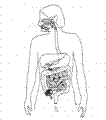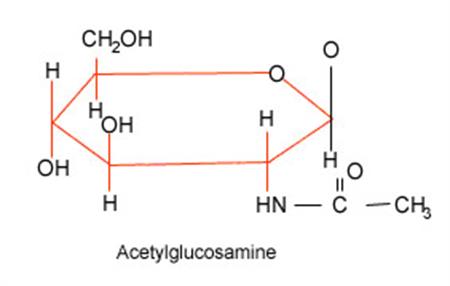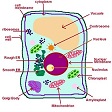Further detail on the Core Modules is shown lower down this page; for further information on any of the modules, please click on the module titles to access the respective pages on this site.
CORE MODULES
ELECTIVE MODULES
Students are to select 3 of these modules to complete the certificate -
CORE MODULE STRUCTURE AND CONTENT
Human Biology 1A (Introduction To Human Biology) BSC101
There are 6 lessons in this module:
-
 Cells & Tissues -
Cells & Tissues -
- Explains the human body at a microscopic level, including the structure and function of cells, tissues and membranes.
- Includes: the cell; human tissues; cell division; cell process; nutrient and waste exchange in cells.
- The Skeleton -
- Examines features of the human skeletal system.
- Includes: bone anatomy; bone types; number of bones in adult human body; joints of bone; bone movements; the skeleton; fractures and fracture healing; osteoporosis.
- The Muscular System -
- Describes the human muscular system, in terms of structure and basic function.
- Includes: tendons; movement; muscle fibre types; skeletal muscle types; summary.
- The Nervous System -
- Looks at the human nervous system, in terms of structure and basic functions.
- Includes: nerve cells; sensory neurons, motor neurons; nerve terminology; the nervous system; central and peripheral nervous system; main parts of the nervous system; the spinal cord; crainial nerves; the autonomic nervous system; reflex actions.
- Digestion & Excretion -
- Explains different physiological systems of digestion and excretion in the body.
- Includes: alimentary canal; mouth; oesophagus; stomach; small intestine; large intestine; accessory digestive organs; tongue, teeth, salivary glands; liver; pancreas, nutrient digestion disorders; selected digestive system disorders; vomiting; peptic ulcer, jaundice; haemorrhoids; cirrhosis; excretion; urinary system.
- Physiological Systems
- Focuses on the different physiological systems of the body.
- Includes: endocrine system.
Aims
- Explain the human body at a microscopic level, including the structure and function of cells, tissues and membranes.
- Explain features of the human skeletal system.
- Describe the human muscular system, in terms of structure and basic function.
- Explain the human nervous system, in terms of structure and basic functions.
- Explain different physiological systems of digestion and excretion in the body.
- Explain different physiological systems of the body.
Biochemistry - Animals BSC103
There are 10 lessons in this module:
-
 Introduction To Biochemistry
Introduction To Biochemistry
- Basics; atoms, chemical bonds, molecules.
- The Periodic Table.
- Parts of a Molecule.
- Common chemical groups.
- Using these groups.
- Arrangement of atoms in a molecule.
- Chemical Nomenclature.
- Hydrocarbons.
- Aromaticity.
- Organisms and Organic Compounds.
- Biochemical Processes in the cell.
- Lipids and Proteins
- Carbohydrates; types.
- Hydrolysis.
- Carbohydrate Function.
- Lipids.
- Fatty Acids.
- Triglycerides.
- Phospholipids.
- Terminology.
- Commercially useful fats and lipids.
- Proteins.
- Functional Categorisation of Proteins.
- Proteins in the human diet.
- Enzymes and Hormones
- Classification of hormones.
- Endocrine Glands.
- Enzyme activation.
- Enzyme deactivation.
- Digestion.
- Digestive Enzymes.
- Digestive Hormones.
- Enzyme PBL Project.
- Nucleic Acids
- Scope.
- Nucleotide Structure.
- RNA.
- DNA.
- ATP.
- ADP.
- Thermo-regulation
- Raising temperature.
- Lowering Temperature.
- Effect of Temperature on Enzymes.
- Sweat Glands.
- Energy Production.
- Individual BMR.
- Fever.
- Carbohydrate Metabolism
- Glycogenesis.
- Glycogenolysis.
- Gluconeogenesis.
- Hyperglycaemia.
- Hypoglycaemia.
- Carbohydrate Oxidation.
- Glycolysis Citric Acid Cycle.
- Anaerobic Respiration.
- Carbohydrate Storage.
- Absorption of Carbohydrates.
- Carbohydrates in Mammals.
- Comparing Energy Pathways.
- The Urea Cycle.
- Absorption
- Digestion.
- Digestive Enzymes.
- Chemical Digestion.
- Absorption.
- Peristalsis.
- Gastric, Pancreatic and Intestinal Juices.
- Acidity and Alkalinity
- What is pH.
- Measuring pH.
- Buffers.
- Animal Acid Base Balance.
- Acidosis and Alkalosis.
- Mammalian Buffer Systems.
- Role of Renal System in Acid Base Balance.
- Chemical Analysis
- Biochemical Testing.
- Concentration testing.
- Moles and Molarity.
- Chromatography.
- Spectrophotometry.
- Analysis of Biomolecules.
- DNA Composition.
- RNA Composition.
- Protein Composition.
- Titration.
- Biochemical Applications
- Environmental and Agricultural Testing.
- Medical Science.
- Poisons/Toxins.
- Cell Structure.
Aims
- Identify characteristics of common chemical compounds important in animal and human biochemistry.
- Explain the characteristics of major biochemical groups, including carbohydrates, lipids, and proteins.
- Explain the characteristics of chemicals which control biological processes in animals and humans, including enzymes and hormones.
- Explain the role of nucleic acids in the biology of animals and humans.
- Explain the role of thermo-regulation in animals and humans.
- Explain the role of carbohydrate metabolism in animals and humans.
- Identify the characteristics of acidity and alkalinity in relation to animals and humans.
- Develop simple chemical analysis skills relevant to testing animals.
- Identify applications and uses for biochemical processes and products.
There are 10 lessons in this module:
-
 Introduction to Cells and Their Structure
Introduction to Cells and Their Structure
- Including: what is a cell, history of cell biology; prokaryotic and eukaryotic cells; cell shape and size; cell structure; the nucleus; the nucleolus; euchromatin and heterochromatin; the animal cell; the plant cell; human cells.
- Cell Chemistry
- Including: cell chemical composition; carbohydrates; lipids; nucleic acids; proteins; enzymes; cell membranes; golgi apparatus.
- DNA, Chromosomes and Genes
- Including: what is DNA, Chromosomes, Genes; DNA replication; telomeres and telomerase; genetics; case study in genetic inheritance; phenotype and genotype; gene mutations.
- Cell Division: Meiosis and Mitosis
- Including: Mitosis and meiosis overview; mitosis; meiosis.
- Cell Membranes
- Including: membranes; structure of cell membranes; movement of molecules through cell membranes; endocytosis; osmosis and filtration; hydrostatic pressure; active transport; electro-chemical gradient; nutrient and waste exchange in animal cells; mediated and non-mediated transport;.
- Protein Structure and Function
- Including: protein structure; fibrous proteins; globular proteins; protein organisation; primary to quaternary structure; protein function.
- Protein Synthesis
- Including: overview; the function of ribonucleic acid in protein synthesis; transcription and translation; initiation; elongation; termination.
- Food, Energy, Catalysis and Biosynthesis
- Including: sources of energy; metabolism within the cell; catabolic metabolism; anabolic metabolism; ATP movement; Kreb's cycle; production and storage of energy; energy production pathways from different foods; biosynthesis of cell molecules; mitochrondria; chloroplasts
- Intracellular Compartments, Transport and Cell Communication
- Including: Cell communication; endocrine signalling; paracrine signalling; autocrine signalling; cytoskeleton; actin filaments; intermediate filaments; microtubules.
- The Cell Cycle and Tissue Formation
- Including: the cell cycle; phases of the cell cycle; cell cycle regulation; cell death; cells to bodies; stem cells; animal tissues including muscle, connective, epithelial, nerve; blood.
Aims
- Review basic cell structure and discuss the scope and nature of cell biology.
- Describe the chemical components and processes of cells.
- Describe the storage of genetic information within cells and how this information is passed on to the next generation.
- Describe key concepts in molecular biology.
- Discuss membrane structure and transport across cell membranes.
- Discuss protein structure and function.
- Describe and discuss protein synthesis.
- Describe the significant processes involved in transfer and storage of energy in a cell.
- Describe the significant processes that occur in cell communication and intracellular transport
- Describe the life cycle of cells and how they combine to create different types of tissues.
How The Course Works
You can start the course at any time.
It is studied by distance learning, so you can study in the comfort of your own home. But this doesn't mean you are all alone in your studies. Our highly qualified and friendly tutors are there to help you every step of the way. If you have any questions at all, they are always happy to help.
To complete the Certificate in Human Biology:
There is an assignment at the end of each lesson. So if there are 10 lessons in a module, there will be 10 assignments.
At the end of each module, there is also an examination which you can take at a time and location to suit you.
To pass the Certificate you are required to pass all assignments and exams.
Each of the modules mentioned can also be studied as a standalone course if you prefer.
WHAT SETS ACS APART?
At ACS we provide you with more than just a set of course notes.
Your 'learning package' includes:
- Course notes.
- Self-assessment quizzes.
- Assignment feedback.
- You can interact one on one with a professional tutor with decades of experience - just email, phone or log on to chat to connect with them.
- Depending upon your course, your studies may involve independent research, interviews, practical exercises, assessments, Problem Based Learning projects, and more.
Student Testimonial
" [The course] is very informative and
worthwhile. I am glad I started the course. Of the many available from
different schools, this offers the best value for money."
Sonia, Human Biology
WHAT NEXT?
Register to Study - Go to “It’s Easy to Enrol” box at the top of the page and you can enrol now.
or
Get Advice – Email us at info@acsedu.co.uk OR
Use our FREE COUNSELLING SERVICE to contact a tutor
CLICK TO CONTACT US